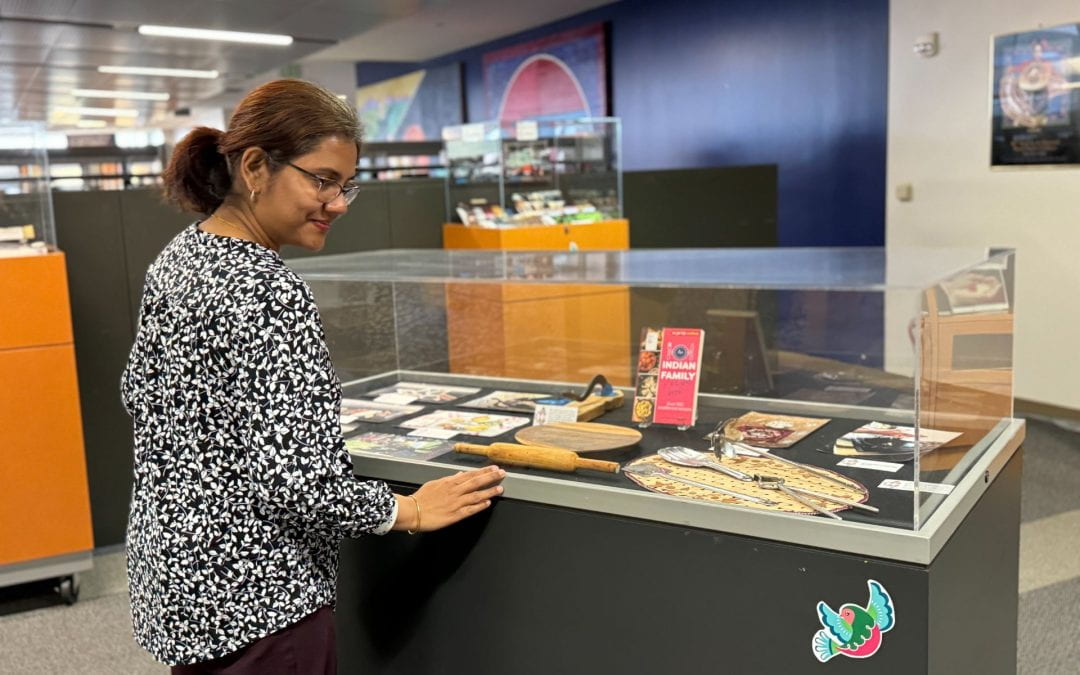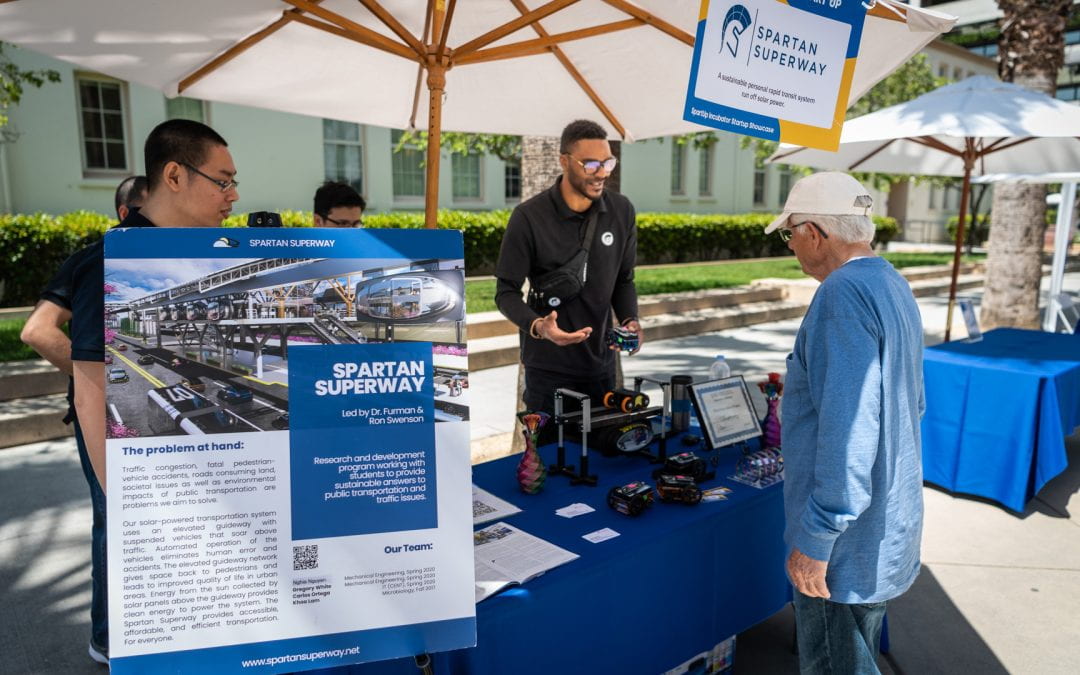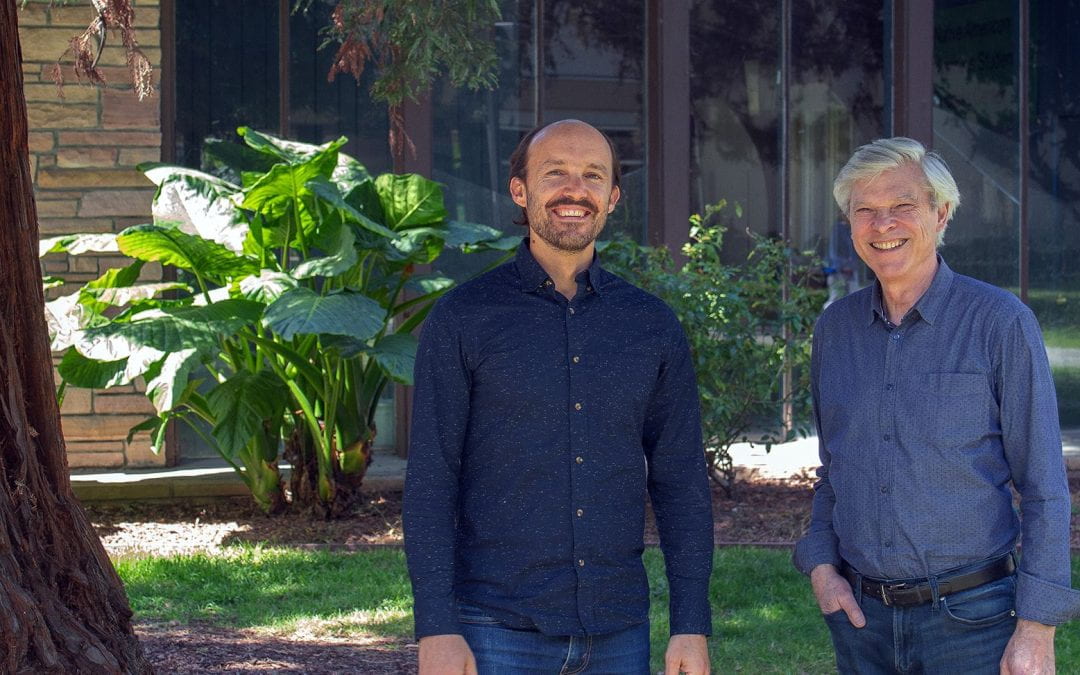Deep Dive in Five With SJSU Cares
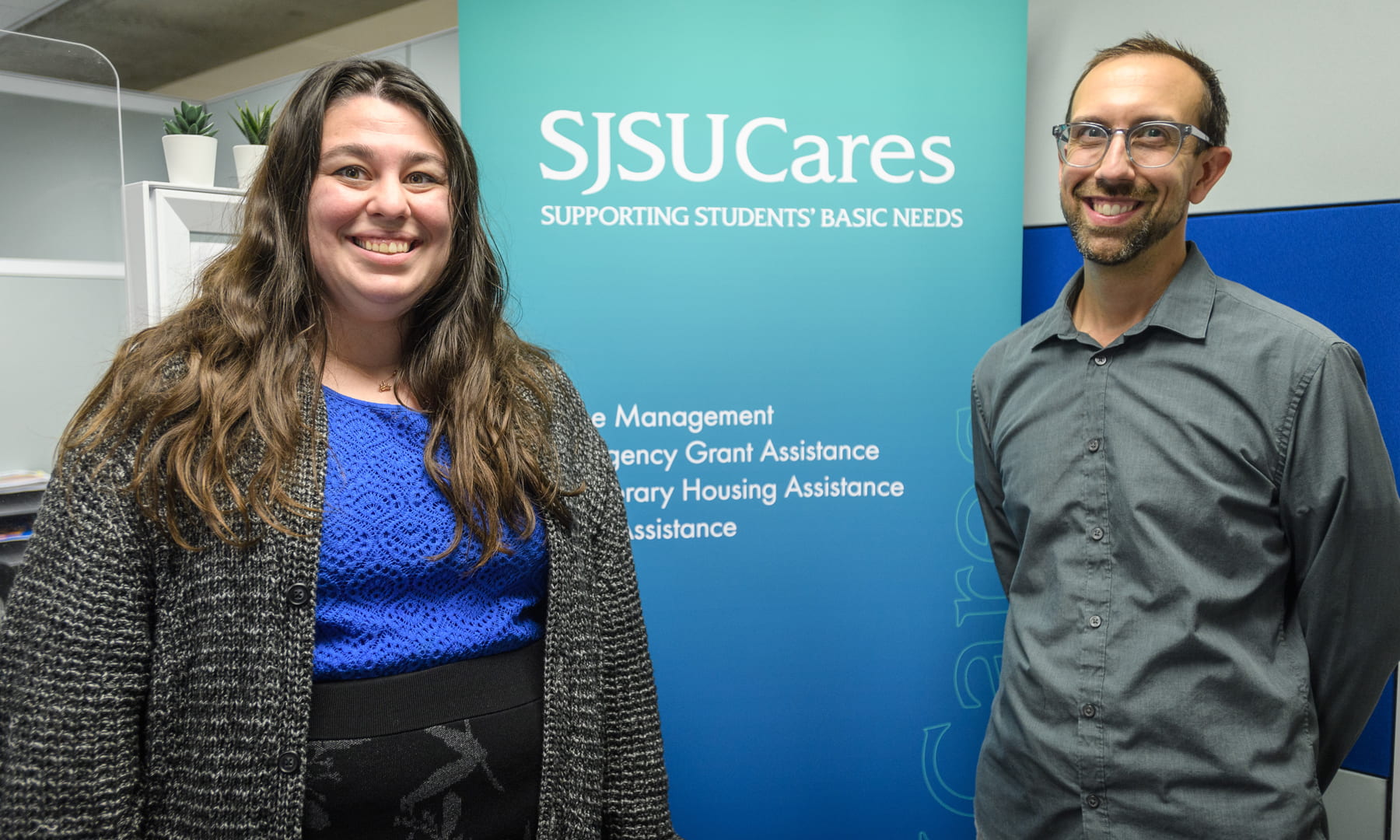
Victoria Sexton (left) and Ben Falter help students who visit SJSU Cares in need of assistance for basic needs.
When students are having trouble making ends meet and struggling to pay for food, housing or other bills due to an unforeseen circumstance or crisis, they may not always have someone to whom they can turn. At San José State University, however, help is available from SJSU Cares.
SJSU Cares addresses the basic needs of students on San José State University’s campus, providing resources and services for those facing financial crises. As we head into the giving season and our second annual Share Your Spartan Heart campaign, I sat down with Ben Falter, the senior student affairs case manager for SJSU Cares. He addresses the critical work of SJSU Cares and how the SJSU community can help.
1. What is the range of services SJSU Cares provides to students?
Our office uses a holistic case-management model to engage with students in person, online and over the phone. During our meetings with students, we cover many basic needs, mental health, academic barriers, etc. to best understand what range of services and discussions would be most beneficial to them. If a student comes in saying they can’t pay for next month’s rent, for example, we will discuss transportation, employment, life stressors, and more. It’s all connected.
Depending on their unique situation, a student working with us may gain support that ranges from an emergency crisis grant to pay off an unplanned medical procedure or temporary housing on-campus, so they have a safe and stable place to go during an eviction, to a hotel voucher so they have a safe and stable place to go with a partner/pet/dependent. We can also help with things such as replacement textbooks after a fire or assistance filling out CalFresh (government food assistance) applications.

Falter (left) and other SJSU case managers meet with students to understand what range of services and discussions would be most beneficial to them.
2. How has the need for Basic Needs support grown on campus?
Our program formally started in December 2015 as we recognized an ad-hoc network of assistance was not sufficient nor sustainable. Assessment data has helped us see the depth of how many students are impacted by food insecurity (29.6%) or housing insecurity (41.5%).
Six years ago this past October, our campus hosted a food distribution program in the Events Center, and in less than two hours, we had more than 320 students walk away with bags of groceries. That event turned into a monthly event in cooperation with Second Harvest of Silicon Valley and laid the foundation for our walk-in Spartan Food Pantry opening in March 2019. The pantry has now served students with more than 70,500 visits.
When the campus has seen a growing need, we’ve scaled operations to include more key case-management staff, increased student assistant and volunteer roles at the pantry and for CalFresh Outreach, and collaborated with more community partners than ever before. Each year, we’ve had more requests for assistance and provided more resources and support.
3. How has the SJSU Food Pantry evolved in the ways it serves students?
Like all of our services, we continue to adapt based on the trends we are seeing in our student population. We’ve seen not just an increase in the number of students who are pantry participants but also a rise in the amount of them who come back every week. We strive to connect them with additional resources, such as CalFresh food assistance, but not all are eligible.
The pandemic has also impacted not just why and who is coming but also what we provide. Supply chain issues have affected some of the staple foods we used to always be able to provide. What we put on the shelves is now more important than ever.
4. Where does the funding for SJSU Cares services come from?
We use a variety of important funding sources to provide for our operations and direct services (crisis grants, emergency housing, etc). Tuition dollars are not used to purchase food at the Spartan Food Pantry, nor to give in-crisis grants when students have unforeseen emergencies.
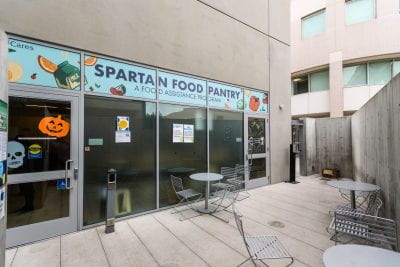
The Spartan Food Pantry has served more than 50,000 student visitors since it opened in 2019.
Funding provided through fundraising is key for us to provide continuity in our services. We’ve had a number of grants from the state, but most were one-time allocations that, while impactful, make it difficult to do long-term planning and meet the needs of our community.
5. How can the SJSU community support SJSU Cares and the students it serves?
Help us continue to de-stigmatize reaching out for assistance. Share our social media, newsletter and flyers when you are able. This helps normalize referring students and student self-referring.
Consider donating online. We love in-person donations at the Spartan Food Pantry, but the truth is that we can use the power of bulk purchases to make a greater impact.
The “Share Your Spartan Heart” campaign, which is about to begin, is a great way to make an impact.
Consider making an ongoing donation. This assists us in knowing that we can continue to purchase the things that our students need, so that students in May have the same opportunities than those in November and December (when many donate).

